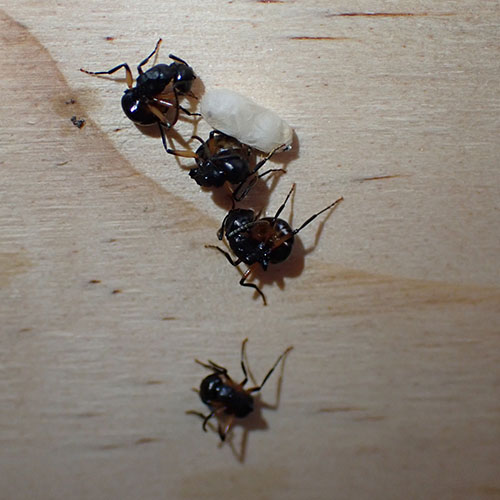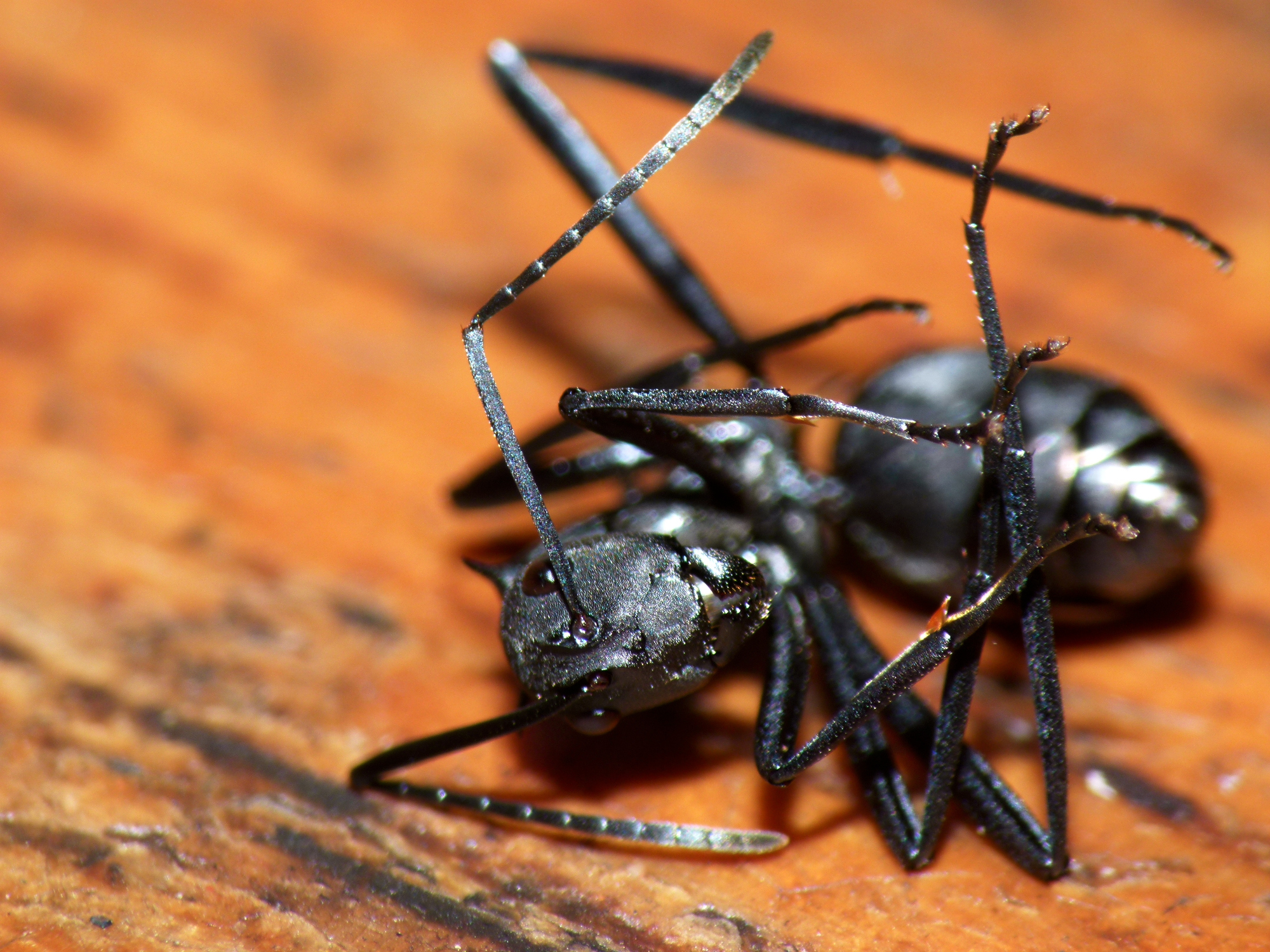When bushfires devastated Australia's Kangaroo Island in 2019 and 2020, researchers installed hundreds of nest boxes to provide shelter for pygmy possums, marsupials barely bigger than a shallot. But while the nests were built for the pygmy possums, they were freely open to anyone looking for a place to live, and soon became homes to other creatures, such as marbled geckos and colonies of Polyrhachis femorata ants.
In January 2022, during a routine check of the nest boxes, a researcher gently opened the lid to discover something strange: an entire colony of P. femorata ants that looked thoroughly, totally, irrevocably dead. Their bodies were contorted and their legs had curled up. But as the researcher opened the lid all the way, something even stranger occurred. Some of the dead ants began to move of their own accord, as if they had come back to life.
As the researcher continued watching the ants, it became clear the entire colony was playing dead—albeit somewhat imperfectly. Poking a pile of "dead" ants with a stick would provoke the ants to move, even if many immediately returned to playing dead. Some ants tending to larvae would attempt to move the babies as their comrades kept up the act. But over the 10 minutes the researcher watched the ants' ruse, the majority of the ants could have convinced anyone nearby that whole colony had kicked the bucket, and there was nothing to see here.

These observations of P. femorata colonies collectively feigning death, which were published in April in the Australian Journal of Zoology, represent the first observation of a whole ant colony engaging in thanatosis, meaning the defense strategy of feigning death (which some creatures pull off more convincingly than others). The benefits are obvious. "Predators are less likely to eat dead prey," S. "Topa" Petit, a wildlife ecologist at the University of South Australia and an author on the new paper, wrote in an email.
Thanatosis occurs throughout the animal kingdom, but very few studies have observed the behavior in ants. In 2008, Deby Cassill, a biologist at the University of South Florida, published an observation of fire ant workers feigning death in the journal Naturwissenschaften (say that five times fast ... or even once!). But the fire ants do not play dead as a colony; rather, the ruse is a means to avoid a territorial battle with a fire ant from a neighboring colony. "Young adults feign death when under attack because their stinger is not yet hard enough to use it as a weapon," Cassill wrote in an email. When the challenging fire ant sees its opponent is dead, it will move on and attack a living ant.
Cassill, who was not involved with the new paper, agrees with the authors that the P. femorata colonies from Kangaroo Island appear to be playing dead, but for different reasons. Unlike feisty fire ants, P. femorata ants are shy and lack a venom-filled stinger with which to do ant battle. Cassill hypothesized the death-feigning colonies could be reacting to a sudden exposure to light. "For an animal large enough to turn over a rock or a log, movement would be key to finding prey," she said. In this case, playing dead could give P. femorata its best chance at escaping the roving eyes of a predator. But "once a predator touched the shy ant, the game of playing dead would be up," Cassill said. "Running is the next best strategy to avoid being eaten."

Petit and her colleagues acknowledge it is possible that the collective stillness of the ant colonies could represent submissiveness or a posture of bodily defense, where the ant's spiny petiole faces outward like a shield. "We can only interpret their intent with human eyes," Petit said. But the authors argue that death mimicry is the most logical explanation.
The more death-feigning colonies the researchers observed, the more they noticed that bigger colonies tended to have a harder time competently playing dead. The more ants in a box, the higher the chance an individual or two would twitch and break character. "Sometimes when one runs around, it will trigger others to move by bumping into them, and they may go back dead again or keep moving for a while," Petit said.
The researchers do not yet understand how the ants manage to pull off this behavior—if communication is involved, if there are cultural differences between colonies, or what exactly triggers the behavior. The researchers say the paper spotlights the need to understand the effects of bushfires and prescribed burns on invertebrates. Spineless creatures are not as cuddly as koalas or pygmy possums and often left out of news coverage on fire impacts on wildlife. "This story reminds us of how little we know and that amazing species are going extinct right now before we find out," Petit said.
The fact that so many pygmy possum boxes were swiftly colonized by P. femorata ants in the wake of the fires suggests the colonies were actively searching for new nest sites, the researchers write. The ants are closely associated with the critically endangered narrow-leaf mallee habitat, which only occurs on Kangaroo Island and is vulnerable to bushfires. And a shy ant like P. femorata has less of a chance at staking out territory than more aggressive species of ants that tend to dominate burnt areas. When times are this tough, sometimes playing dead gives an ant the best chance it has at staying alive.






